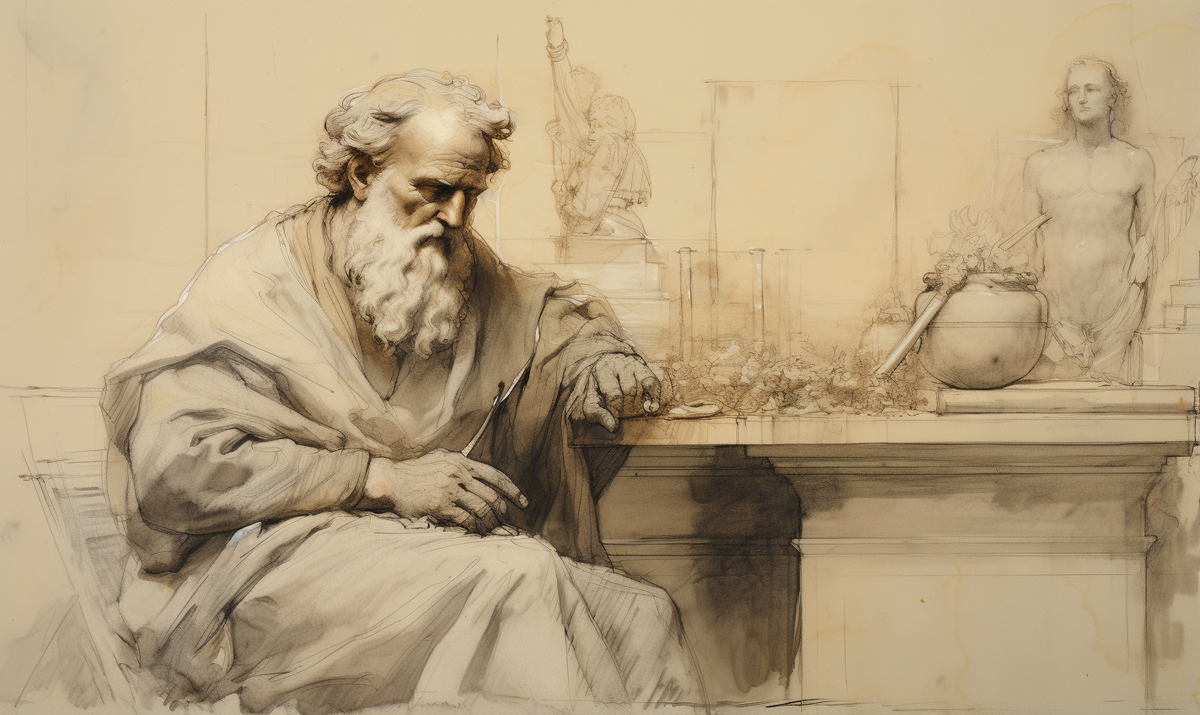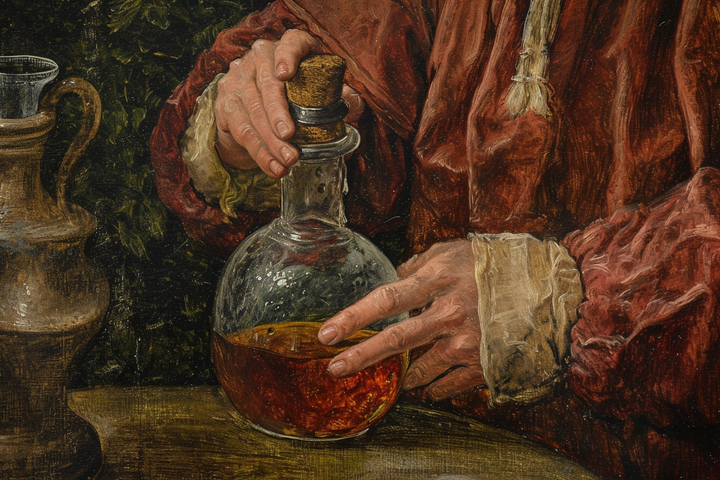Zosimos of Panopolis: The Pioneer of Alchemy and Gnostic Mysticism

Greetings and welcome to Crazy Alchemist! Our site is the perfect place for those who are intrigued by the enigmatic and magical realm of alchemy. Today, we are focusing on a legendary figure who played a pivotal role in the history of alchemy—Zosimos of Panopolis. Zosimos was a Greco-Egyptian alchemist and Gnostic mystic who lived during a significant era between the 3rd and 4th centuries AD. His invaluable contributions to alchemy and spiritualism have left an indelible mark, and his legacy continues to captivate and inspire researchers and enthusiasts alike.
Early Life and Background
Zosimos was born in the city of Panopolis, which is now known as Akhmim, situated in the southern part of what was then Roman Egypt. Flourishing around the year 300 AD, Zosimos is often credited with penning the oldest known books on the subject of alchemy. He referred to his works as "Cheirokmeta," a term derived from the Greek word for "things made by hand." While only fragments of his original works have survived, they have been translated into languages such as Syriac and Arabic and are preserved in manuscripts in cities like Venice and Paris.
Panopolis was not just any city; it was a hub of religious and esoteric activities. The city was known for its temples and libraries, making it a fertile ground for intellectual pursuits. This environment likely played a significant role in shaping Zosimos' interests and studies.
The Arabic Connection: A Rediscovery
In 1995, a groundbreaking discovery was made—Arabic translations of Zosimos' texts were found in a book authored by Ibn Al-Hassan Ibn Ali Al-Tughra'i, a Persian alchemist. Although incomplete and not verbatim, these translations opened a new avenue for understanding Zosimos' work. Fuat Sezgin, a renowned historian of Islamic science, further expanded on this by discovering 15 manuscripts of Zosimos in various libraries across cities like Tehran, Cairo, Istanbul, Gotha, Dublin, and Rampur.
The Arabic tradition of Zosimos' works is rich and promising but remains largely unexplored due to the lack of translated editions. Michèle Mertens, in her translation of Zosimos, emphasized the need for more accessible translations to unlock this treasure trove of knowledge.
Defining Alchemy: A Philosophical Approach
Zosimos was among the first to offer a comprehensive definition of alchemy. He described it as the study of "the composition of waters, movement, growth, embodying and disembodying, drawing the spirits from bodies and bonding the spirits within bodies." This definition is a blend of both material science and spiritual philosophy, indicating the dual nature of alchemy as understood by Zosimos.
Spiritual Influences: Hermeticism and Gnosticism
Zosimos' understanding of alchemy was deeply rooted in Hermetic and Gnostic spiritualities. He believed that the arts of metallurgy were taught by fallen angels to the women they married. This idea finds parallels in ancient texts like the Book of Enoch and the Gnostic Apocryphon of John.
In his work "Concerning the True Book of Sophe, the Egyptian," Zosimos elaborated on the dual sciences and wisdom of the Egyptians and Hebrews. He argued that both traditions were guided by divine justice and originated from ancient times.
The Book of Pictures: A Visual Journey
Zosimos' "Book of Pictures" is a unique work that employs images to convey complex alchemical and spiritual concepts. Divided into 13 chapters, each introduced by a separate image, the book is a dialogue between Zosimos and his female student, Theosebeia. It covers a wide range of topics, from the technical aspects of alchemy to the symbolic and psychic dimensions.
The dialogue between Zosimos and Theosebeia serves as a pedagogical tool, making complex ideas more accessible. It also reflects the challenges of interpreting alchemical texts, as Theosebeia often questions Zosimos' cryptic statements, prompting him to clarify.
The Book of the Keys of the Work: The Final Testament
Another seminal work by Zosimos is the "Book of the Keys of the Work," a commentary on a work attributed to Democritus. This book serves as Zosimos' final teachings to Theosebeia and is considered an essence of his entire philosophical and alchemical outlook.
Legacy and Influence: The Eternal Alchemist
Zosimos' works have had a profound impact on both the alchemical and spiritual landscapes. His ideas have been cited by various scholars and practitioners, including Stephen of Alexandria, and have influenced Arabic alchemists like Ibn Umail. His teachings also form a cultural bridge, linking the thoughts of pharaonic Egypt with European medieval alchemy.
Conclusion: The Timeless Relevance of Zosimos
Zosimos of Panopolis remains an enigmatic yet pivotal figure in the realms of alchemy and Gnostic mysticism. His fragmented yet profound works offer invaluable insights into the interconnectedness of the material and spiritual worlds. As we continue to delve into the mysteries of alchemy, Zosimos' teachings serve as a lighthouse, guiding us toward greater understanding and enlightenment.
Thank you for joining us on this comprehensive journey through the life and works of Zosimos of Panopolis. Keep an eye on Crazy Alchemist for more deep dives into the fascinating world of alchemy and its luminaries.
Stay curious, stay alchemical!




